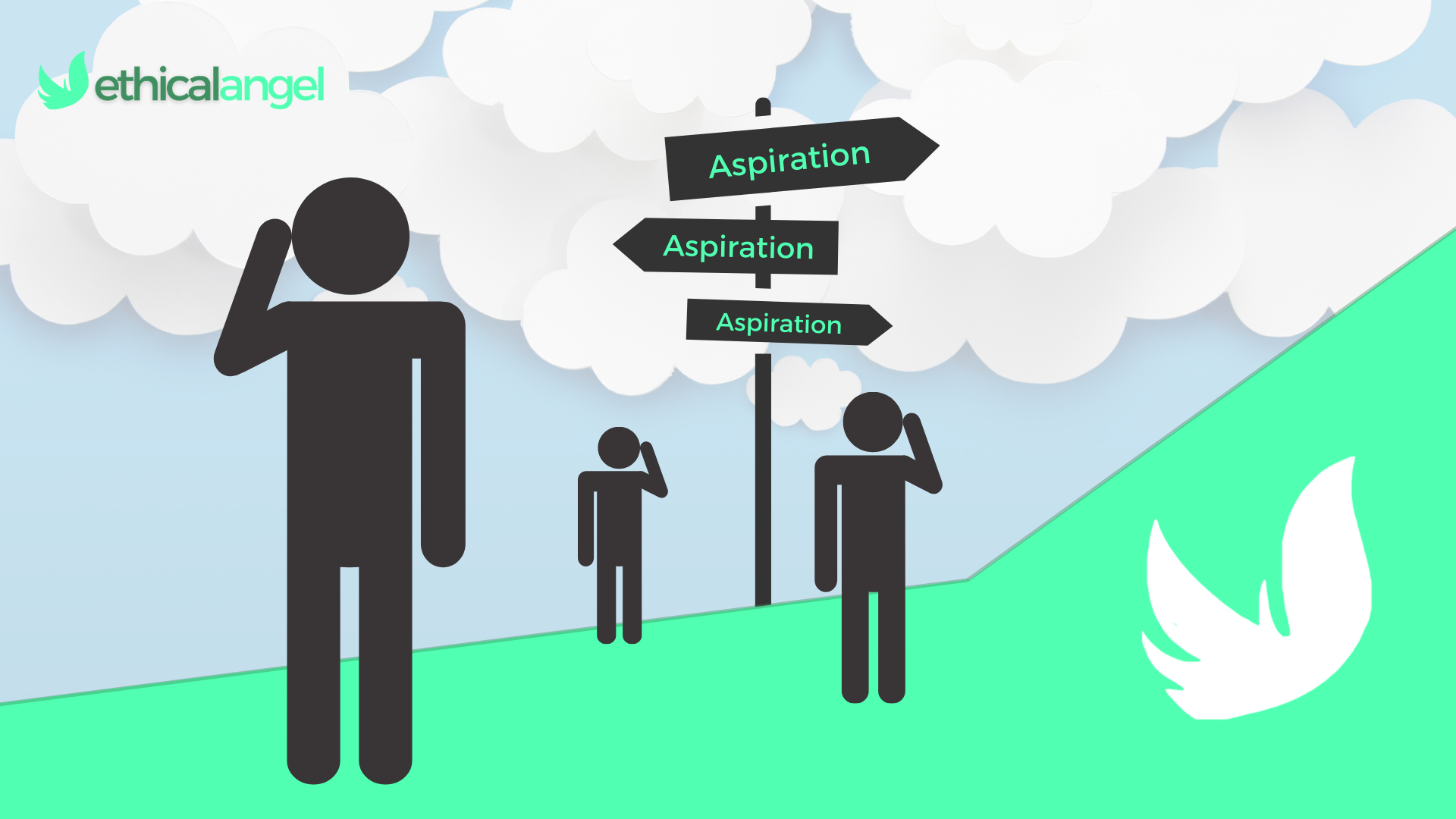In today’s competitive business environment, it is important to ensure your organisation is as efficient as it can be. As Ethical Angel’s COO, I recognise the importance of driving operational efficiency, and increasingly it’s not just the technical skills and abilities that are important – it’s the soft skills your team possess that makes the difference.
When it comes to issues related to technical skills, it’s usually easy to diagnose as you can rely on KPIs you’re tracking and reporting against to highlight issues. However, when it comes to soft skills issues, it’s not so easy as they can often be misdiagnosed or go unnoticed. This is a key issue I’ve witnessed many times over the years, as it leads to wasted budget being spent on the wrong training, and ultimately doesn’t rectify the issues in your business which means your teams still aren’t able to operate at the levels they could be.
In this blog I’ll highlight 7 common signs that can indicate you have a soft skills issue in your business or team, and how you can tackle them to help you avoid incorrectly diagnosing them in the future.
And for more information on soft or power skills, as they’re beginning to be known, download our Power Skills Guide today.
1. Deadlines Keep Getting Missed or Pushed Back
Moving to a partial or complete work-from-home environment was a big leap of faith for many employers that they simply had to take. Would teams be legitimately productive away from the office? Without the natural structure that a day at the office provides, and the ability for managers to gently check on progress, how would staff with poor time and self-management skills cope with deadlines? Now, the overall consensus has been that employees have transitioned to working from home well, but there are a number of signs to look out for when it comes to time management skills. The first is obvious, missing deadlines. This is the number one sign that staff could benefit from soft skills training related to time and self-management.
The second is less obvious, and that is staff working additional hours to avoid completely missing a deadline/pushing it back even further. Reports have found that employees have increased their hours by as much as 25% since working from home became the norm. This may be a result of increased workload, but it may also be indicative of staff needing additional training. The question for you as an HR leader is, have workloads increased since WfH became the norm, or are deadlines slipping because of a skills gap? If the answer is the latter, it is something that needs to be rectified urgently as leaving it unaddressed can lead to increased stress on both the individual and your wider team, burnout due to increased hours and projects being pushed back.
2. Poor Prioritisation
Poor prioritisation is a huge frustration in business. It impacts delivery deadlines and can lead to huge amounts of resources being directed at the wrong project, but so often the root of the cause is missed. Poor prioritisation generally gets blamed on staff ‘wanting to do their own thing’ or ‘not listening to management’, but that is very rarely the actual reason, as the majority of staff are doing what they genuinely feel is best to help the organisation. The more likely reason that staff are prioritising poorly is that they haven’t recognised the ‘bigger picture’ – and the way that their work fits into a project or company strategy. To avoid this, you need staff who can use critical thinking skills to evaluate and prioritise tasks and options, and then take decisive action, focussed on the right tasks; staff who are empowered and able to make decisions, resulting in a much higher pace of development and growth. This ability to prioritise is also a sign of a good leader, able to assess risks, set direction and drive performance.
3. Sales and Marketing Not Generating Enough Sales or Leads
We are all aware of how the lack of leads or sales will impact the business – and there are often technical skills that can be deployed to improve things. However, soft skills also have a huge effect. The most obvious sign of soft skills problems in a sales or marketing function is employees who have strong technical skills, but still aren’t hitting targets. This can result in managers coming up short when looking for ways to support their team, but they only need to look at the soft skills that make up leadership and influence. A sales person or marketer can have all the technical skills in the world, but if they aren’t adept at the art of persuasion or public speaking, they’ll be facing an uphill struggle. Looking beyond that, good problem solving, leadership and communication skills can all result in improvements. When they are in place, creative problem solving and innovation will exist and help to come up with new ideas as well as addressing existing problems that will ultimately result in more leads and sales.
4. Teams Working in Silos
Teamwork is vital for success – but so is cross-team work. Imagine if your sales team didn’t collaborate with the marketing team to get the branding right, or customer service teams didn’t pass feedback to your product managers. Soft skills are vital for these relationships. Effective and efficient collaboration requires good communication (active listening, giving clear feedback, negotiation, and persuasion, to name just a few soft skills). If you witness teams in your business working in silos, it’s a sign that collaboration has stopped, and this will lead to targets being missed, and tasks being poorly prioritised. A company’s success is rarely dependent on one person doing something all by themself. Success is the result of many people working toward a common goal. When employees can combine their varied talents, everyone wins.
5. A Drop in Customer Satisfaction or Retention
Of course, there could be many reasons why your levels of customer satisfaction or retention are low, but one soft skill above all others is most likely to have a positive impact: communication. The ability to communicate with clients is essential. Now that most communication is done through emails, chats, video, or phone conference calls, strong communication skills are more critical than ever. The right communication at the right time can have a significant impact on your customers. It can leave your customers feeling good about the contact they've had with you. Customer satisfaction stems from helping your customers feel listened to, cared for, respected, and included in decision making. Get the communication wrong, and they’ll be left feeling the opposite.
6. Increased Friction Between Staff and Teams
We’ve all heard the stories since working from home became the norm; working remotely makes teamwork harder, Zoom calls increase friction between team members. That may be true, but the reality is online working has just highlighted skills gaps by exacerbating an existing problem. It’s not Zoom’s fault! If this is happening in your organisation it is a clear sign that communication and empathy training is needed. As an HR leader, you know that a certain amount of conflict in business is inevitable, but it is important how an individual or manager deals with it. This applies to both Substantive Conflicts (which occur with things such as tasks, goals, and the allocation of resources) and Emotional Conflicts (which occur from things such as jealousy, annoyance, envy, and personality conflicts), as dealing with both types requires a broad range of soft skills: listening, communicating, persuasion, leadership, clarity, collaboration… to name just a few. So, it is vital that we equip our people with the right skills, as skilled team members and managers will handle these moments well to create a positive outcome.
7. Staff Suffering Burnout
Employee burnout is a state of emotional and physical exhaustion that can lead to cynicism, lack of engagement, and even an inability to complete normal day-to-day activities. It’s easy to see the immediate impact this has on a business, an employee and their colleagues. Burnout can result from various factors, including lack of control, unclear expectations, dysfunctional workplace dynamics, poor work-life balance, and a poor sense of community. The financial cost of neglecting employee wellbeing has become glaringly apparent, and can cost your business significantly in either lost revenue or efficiency.
We’re currently living through one of the most testing periods for employee burnout in history. With more employees turning to their employers for support, it’s never been more important for leaders and managers to listen to the needs of their workers, and to make them feel heard by taking action. As leaders, we should also be doing more to equip our employees with the skills they will need to avoid burnout. I’ve already talked about the importance of self-management, prioritisation of work, and good teamwork but when it comes to burnout, resilience and a successful mindset are also key. This is because each individual’s underlying mindset can have an enormous impact on their susceptibility to burnout and contribution to an organisation. It is also the foundation to being successful as roles, industries and organisations change over time. Adaptability gives people a clear advantage when faced with change. This is a particularly important skill to foster in organisations at times of growth, and lends itself to being able to work in faster paced environments.
How to Address Your Soft Skills Gaps
Like technical skills, soft skills can weaken if they go unused. That’s why employees must practise them continuously to avoid the issues we’ve highlighted above. In most cases, developing soft skills won’t be successful using a one-and-done approach like a single webinar or training session. That’s why it’s more important than ever for you as a HR leader to build continuous soft skills development into your learning and development strategy.
For soft skills, the training methods that tend to work best are flexible, shorter and more frequent. Experiential learning (learning by doing) is ideal for this, as it offers employees the ability to immediately apply knowledge, access real-time coaching and feedback, and promote teamwork and communication skills. At Ethical Angel, we champion this type of learning through our Experiential Learning Platform as it is able to provide real-life, real-time opportunities for learning, whilst at the same time delivering value to global causes.
Finally, building soft skills training into your L&D Strategy will also have recruitment and retention benefits. Monster’s ‘The Future of Work 2021: Global Hiring Outlook’ report has shown that social responsibility has now taken even greater meaning. Candidates will be looking to see how a company treated their employees during the pandemic, and how they are contributing to society. It is more important than ever that companies have a clear and compelling story to tell candidates.
Still Not Convinced? Here’s a Final Thought…
Imagine a doctor with well rounded technical and soft skills. And now imagine a doctor who excels in all the technical skills but has none of the soft skills required: Leadership, communication, empathy, attention to detail, teamwork, decision-making, ability to perform under pressure. Given the choice, I know which sort of clinician I’d want to be treated by.
.png)


